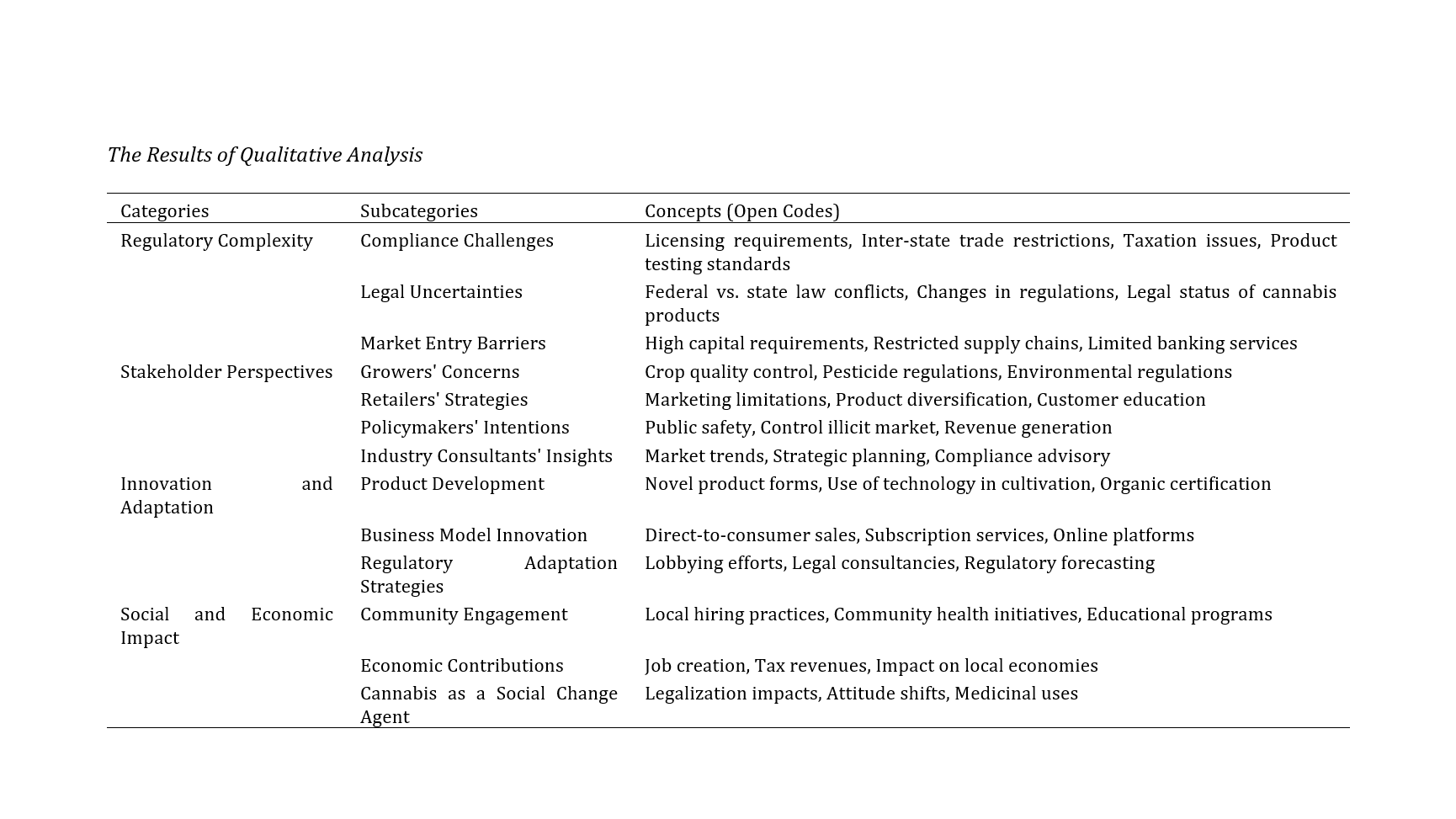DOI:
Keywords:
Cannabis Industry, Regulatory Challenges, Innovation, Economic Impact, Qualitative Research
ABSTRACT
As the legalization of cannabis gains momentum globally, it becomes imperative to understand the regulatory challenges and opportunities this industry faces. The objective of this study was to investigate these elements through qualitative insights from stakeholders within the cannabis industry, exploring the complex interplay between regulatory frameworks and industry dynamics. This qualitative study was based on semi-structured interviews with 26 stakeholders in the cannabis industry, including growers, retailers, policymakers, and industry consultants. Participants were selected using purposive sampling to ensure diverse perspectives. The data was analyzed using NVivo software to achieve thematic analysis and theoretical saturation. The analysis identified four main themes: Regulatory Complexity, Stakeholder Perspectives, Innovation and Adaptation, and Social and Economic Impact. These themes encompassed various subcategories such as Compliance Challenges, Legal Uncertainties, Market Entry Barriers, Growers’ Concerns, Retailers’ Strategies, Policymakers’ Intentions, Product Development, Business Model Innovation, Community Engagement, and Economic Contributions. Each theme and its subcategories provided deep insights into the varied impacts of regulations on different stakeholders within the industry. The study concluded that navigating the cannabis regulatory landscape is highly complex and requires stakeholders to engage in continual adaptation to remain compliant and competitive. Effective regulatory frameworks should balance public health concerns with economic opportunities, supporting innovation while ensuring safety and compliance. The findings underscore the necessity for policies that are responsive to the evolving needs of this dynamic industry.

